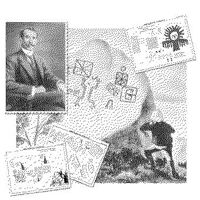User:Jacopo/wordsforthefuture
Words for the Future - The Re-Publishing Project
What does it mean to re-publish something? How to engage with new publics? And how to drive potential new meanings by departing from specific, already defined paths? We've been asked to re-work the original 10 essays and contributions previously collected in Words for the Future by Nienke Scholts, by unfolding the meanings deriving from the process of re-publishing.
Goal:
- Re-publishing the original material online.
- Writing an open access license.
Otherness
Reading, Writing, Annotate
With Steve, we approached the original essays first by:
- Skimming the text, in order to get a general overview of the material
- Annotating between lines and paragraphs, both individually and collectively
- Making a glossary of unknown words
- Finding interstitial spaces between the texts as some sort of inbetween dramaturgy
- Creating connections with related material
- Difracting the material, to look it from different perspectives and explore different layers of the same subject
Questions of language: the use of the english is limiting the audience. How can the material be expanded towards different languages? How can we use the license for it? Encouraging different translations, or making an audio-lecture for blind people. Then, the challenge of translation is generally defined by the variety of features, such as the language structure, which differs between languages. Could we trust to any translation? Or should we be sceptic about all of them? In the process of translation we could loose specific details, specially if we deal with ultra-local languages or lost dialects (See Otherness).
Reading Group Pad
- ATATA – https://pad.xpub.nl/p/ISSUE13_Atata_notes
- OTHERNESS – https://pad.xpub.nl/p/Otherness_Daniel_L._Everett
- HOPE – https://pad.xpub.nl/p/Hope_Gurur_Ertem
Wor(l)ds for the Future – Republishing Tool Kit for an Imaginary Atlas
Words have the power to shape reality. Wor(l)ds for the Future is a set of map-making tools to re-imagine and collect wor(l)ds, and to re-publish an everchanging atlas. We invite you to delve into the materials and traverse the texts in any way you desire: by cutting and pasting the printed matter, or by unravelling the texts online. The choice is yours. You can reconstruct images and reinterpret words to create Wor(l)ds for the Future.
This project is a republication of Words for the Future (2018), a multivoiced series of ten booklets. In the 2020 version, we reinterpreted the original material through methods such as annotating and prototyping in Python (a coding language we used to analyse text as texture). The ten booklets were cross-examined and mapped in order to find interconnections and links.
PADS
29.09 / https://pad.xpub.nl/p/29-9-2020
Readings
> https://translation-studies.net/_files/200000027-1d7e71e7f5/2018.pdf

